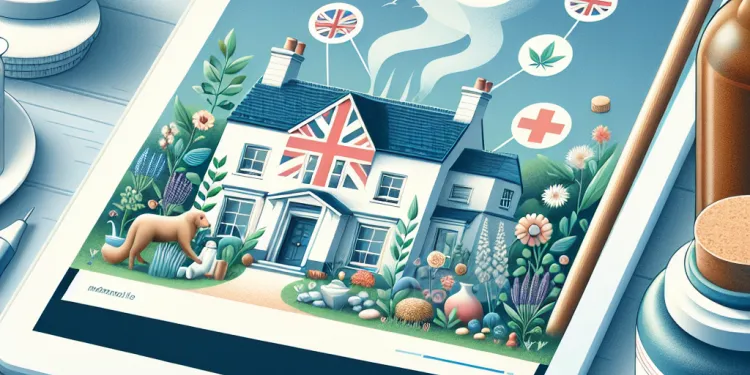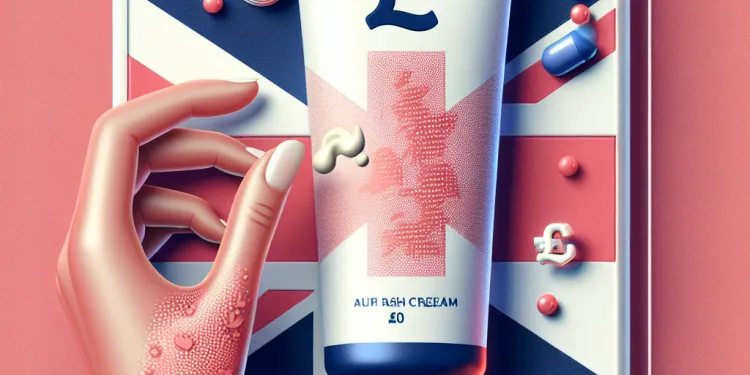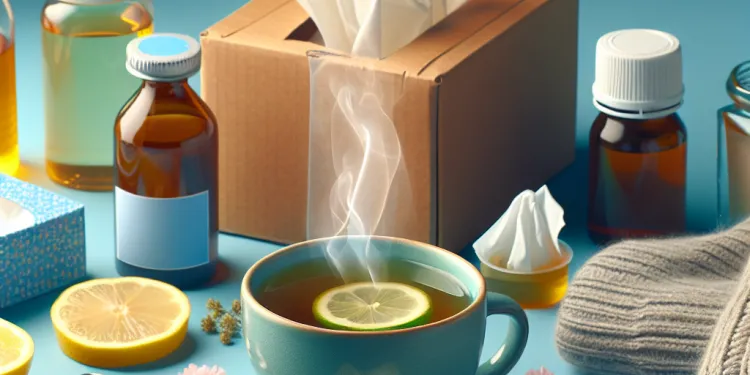
Find Help
More Items From Ergsy search
-

Are there any home remedies for eczema?
Relevance: 100%
-

Are there home remedies for psoriasis?
Relevance: 64%
-

Are there home remedies for chickenpox?
Relevance: 61%
-

Are there any home remedies for impetigo?
Relevance: 60%
-

Is there a cure for eczema?
Relevance: 55%
-

What is eczema? General Information
Relevance: 54%
-

What treatments are available for eczema?
Relevance: 53%
-

How can I prevent eczema flare-ups?
Relevance: 52%
-

Is eczema contagious?
Relevance: 51%
-

What are the main types of eczema?
Relevance: 51%
-

Are there any home remedies for nettle rash?
Relevance: 50%
-

What causes eczema?
Relevance: 48%
-

Managing and treating your child's eczema
Relevance: 48%
-

Who is at risk of developing eczema?
Relevance: 46%
-

Factors that trigger eczema in your child
Relevance: 46%
-

Can eczema improve with age?
Relevance: 46%
-

Can diet affect eczema?
Relevance: 46%
-

How can eczema be diagnosed?
Relevance: 46%
-

Can dust mites cause asthma and eczema?
Relevance: 46%
-

Eczema - Your child's appointment | Dermatology | Paediatrics
Relevance: 46%
-

Who can prescribe homeopathic remedies?
Relevance: 39%
-

Health Officials Warn Against 'DIY' Health Remedies Amid Supply Chain Issues
Relevance: 38%
-

Are there natural remedies for menopause masking?
Relevance: 36%
-

How can I treat a cold at home?
Relevance: 36%
-

Are there any natural remedies for bed bugs?
Relevance: 36%
-

How does weather affect eczema?
Relevance: 34%
-

What are common symptoms of eczema?
Relevance: 33%
-

How are care homes different from nursing homes?
Relevance: 27%
-

What are Care Homes?
Relevance: 26%
-

What are some common conditions treated with homeopathy?
Relevance: 26%
-

Fire Safety At Home
Relevance: 25%
-

Why might there be more spiders in the home during autumn?
Relevance: 25%
-

Are there different types of care homes?
Relevance: 25%
-

The role of residential and nursing homes
Relevance: 25%
-

The role of residential & nursing homes
Relevance: 25%
-

What is the Warm Home Discount?
Relevance: 25%
-

Home Haemodialysis - Donna's story
Relevance: 25%
-

Is the Warm Home Discount a loan?
Relevance: 24%
-

Do care homes provide medical care?
Relevance: 24%
-

Home dialysis help for kidney patients
Relevance: 24%
Understanding Eczema
Eczema, also known as atopic dermatitis, is a common skin condition that causes itchy, inflamed, and irritated skin. It affects many people in the UK, and its persistent nature can significantly impact daily life quality. While medical treatments are available, many individuals seek home remedies to alleviate the symptoms of eczema.
Moisturising the Skin
One of the most crucial aspects of managing eczema is keeping the skin well-moisturised. Emollients or moisturisers should be applied regularly to maintain skin hydration and create a barrier against irritants. Several natural oils, such as coconut oil, jojoba oil, and shea butter, are popular choices due to their moisturizing properties. These can be used post-bath when the skin is slightly damp to help lock in moisture.
Oatmeal Baths
Oatmeal baths are a traditional remedy for soothing itchy skin due to their anti-inflammatory properties. Finely ground oatmeal, also known as colloidal oatmeal, can be added to a warm bath to help ease itching and irritation. The soothing nature of oatmeal makes it a comforting option for those dealing with eczema flare-ups.
Aloe Vera
Aloe vera is well-known for its soothing and healing properties. Applying pure aloe vera gel directly on the affected area can provide relief from itching and promote skin healing. Besides its cooling effect, aloe vera also has antibacterial properties that may prevent infection of irritated skin.
Dietary Considerations
For some people, certain foods can trigger eczema flare-ups. Identifying and eliminating these triggers can help manage symptoms. Common food allergens include milk, eggs, nuts, and wheat. Including anti-inflammatory foods such as fatty fish, leafy greens, and berries in the diet can potentially help reduce inflammation and improve skin health.
Avoiding Irritants
Being mindful of environmental factors is vital in controlling eczema. This includes wearing soft, breathable fabrics like cotton, using fragrance-free detergents and skincare products, and avoiding long, hot showers that can strip the skin of its natural oils. Additionally, stress can exacerbate symptoms, so incorporating relaxation techniques such as yoga or meditation may be beneficial.
Conclusion: When to Seek Medical Advice
While home remedies can be effective in managing mild eczema, it is essential to consult a healthcare professional for severe cases or when home treatments do not provide relief. Persistent, worsening, or infected eczema requires medical attention, and a doctor can offer advice on more robust treatment options like topical corticosteroids. A dermatologist can provide tailored advice to help manage eczema effectively, ensuring an improved quality of life.
Understanding Eczema
Eczema, also called atopic dermatitis, is a skin problem that makes your skin itchy, red, and sore. Many people in the UK get eczema, and it can make everyday life hard. Doctors can help with medicine, but some people like to try things at home to feel better.
Keeping Skin Moisturised
One important thing to help eczema is to keep the skin soft and wet. Use creams or moisturisers to stop the skin from drying out. This helps protect the skin. Some natural oils like coconut oil, jojoba oil, and shea butter are great. Put them on after a bath when the skin is still a bit wet. This keeps the skin moist.
Oatmeal Baths
Oatmeal baths are an old way to make itchy skin feel better. Oatmeal can calm the skin because it stops redness and itching. You can add special oatmeal called colloidal oatmeal to a warm bath. This helps to soothe the skin. It can be very comforting if your eczema is making you itchy.
Aloe Vera
Aloe vera is good for calming and healing the skin. You can put aloe vera gel on the itchy spots. It helps stop itching and helps the skin heal. Aloe vera can also stop germs from infecting your skin.
Diet and Eczema
For some people, certain foods can make eczema worse. Finding and stopping these foods can help. Foods that might cause problems are milk, eggs, nuts, and wheat. Eating healthy foods like fish, green veggies, and berries can help make the skin better.
Staying Away from Irritants
Keeping away from things that irritate your skin is important. Wear soft clothes made from cotton. Use soaps and creams that have no smells. Take short, warm showers, not long hot ones, because hot water can dry your skin. Stress can also make eczema worse, so relaxing with things like yoga or meditation can help.
When to See a Doctor
Home remedies can help if eczema is mild. But if eczema is really bad or if these treatments don’t help, you should see a doctor. If eczema is not getting better or gets infected, a doctor can help. Doctors can give stronger creams called topical corticosteroids. A skin doctor, called a dermatologist, can also give you special advice to manage eczema better and help you feel better.
Frequently Asked Questions
What is a simple home remedy for soothing eczema?
Applying coconut oil can help moisturize the skin and reduce eczema symptoms due to its anti-inflammatory properties.
Can honey be used for eczema relief?
Yes, honey has natural antibacterial and anti-inflammatory properties that may soothe eczema-affected skin.
Is oatmeal good for treating eczema at home?
Oatmeal baths can be very soothing for eczema. Colloidal oatmeal has properties that help reduce itching and inflammation.
How does apple cider vinegar help with eczema?
Apple cider vinegar can help balance the skin's acidity levels and fight bacteria. Dilute it with water and apply to the skin, but do a patch test first.
What role does aloe vera play in managing eczema?
Aloe vera is known for its calming and healing properties, which can help soothe eczema-flared skin and reduce itching.
Can baking soda be used as a remedy for eczema?
Baking soda can help relieve the itchiness associated with eczema. Try adding it to a warm bath.
Is magnesium helpful for eczema when used topically?
Magnesium baths or magnesium oils may reduce stress and inflammation, potentially benefiting eczema sufferers.
How can sunflower oil be used to ease eczema?
Sunflower oil has moisturizing properties that can help with skin barrier repair and decrease inflammation, improving eczema symptoms.
Does chamomile help relieve eczema symptoms?
Chamomile has anti-inflammatory and soothing properties, which can help when applied to irritated eczema patches.
Can evening primrose oil be useful for eczema?
Evening primrose oil contains fatty acids that may help reduce skin dryness and irritation associated with eczema.
Is tea tree oil recommended for eczema treatment?
Tea tree oil can have anti-inflammatory and antimicrobial effects, but it should be used in a diluted form to avoid skin irritation.
Are probiotics helpful in managing eczema?
Probiotics might improve gut health and potentially reduce eczema outbreaks by modulating the immune system.
Can diet change help alleviate eczema symptoms?
Identifying and eliminating food allergies or triggers, such as dairy or gluten, may help improve eczema in some individuals.
Does drinking sufficient water affect eczema?
Staying hydrated can help maintain skin moisture, potentially reducing the severity of eczema flares.
Can lavender oil ease eczema discomfort?
Lavender oil has anti-inflammatory properties and can be calming, but should always be diluted before applying to the skin.
How does licorice root assist in eczema symptom management?
Licorice root has anti-inflammatory properties that can help soothe eczema and reduce redness.
Should I consider a humidifier for eczema relief?
Using a humidifier can add moisture to the air in dry environments, which may help keep the skin hydrated and alleviate eczema symptoms.
Is it beneficial to adjust shower habits for eczema?
Taking shorter, lukewarm showers and using gentle cleansers can help prevent the skin from drying out, reducing eczema irritation.
What role does vitamin E play in treating eczema?
Vitamin E is an antioxidant that can be applied topically to help moisturize and heal the skin, potentially reducing eczema symptoms.
Can wearing breathable fabrics alleviate eczema?
Yes, wearing breathable and natural fabrics like cotton can reduce skin irritation and allow the skin to breathe, which can help manage eczema.
What can I use at home to help itchy skin from eczema?
If your skin is itchy and dry because of eczema, you can try these simple tips:
- Use Moisturizers: Put cream on your skin to keep it soft and stop it from itching.
- Cool Baths: Take a short bath in cool water. This can help your skin feel better.
- Wear Soft Clothes: Wear clothes made of soft materials like cotton to stop your skin from getting irritated.
- Avoid Scratching: Try not to scratch your skin. Scratching can make it worse.
- Use Mild Soap: Wash with gentle soap that doesn't have a strong smell.
If you need help, you can ask a grown-up or use picture cards to remember these tips.
Putting coconut oil on your skin can help make it soft and smooth. It can also help with itchy skin problems like eczema because it can calm the skin down.
Can honey help with itchy skin?
Yes, honey can help your skin if you have eczema. It fights germs and reduces swelling.
Can oatmeal help with eczema at home?
Oatmeal can be good for skin problems like eczema. It can help stop itching and make your skin feel better.
If you want to try oatmeal, you can make an oatmeal bath. Put some oatmeal in a sock or a cloth bag. Then, put it in the bathwater. You can also find special oatmeal creams at the store.
If you are not sure if you should use oatmeal, ask a doctor or a grown-up you trust.
Oatmeal baths can help your skin feel better if you have eczema. Special oatmeal, called colloidal oatmeal, can help stop the itch and make the swelling go down.
How can apple cider vinegar help with eczema?
Apple cider vinegar is a type of vinegar made from apples. Some people think it can help with eczema. Eczema is when your skin gets itchy and red.
Here is how apple cider vinegar might help:
- Balance Skin: It helps keep skin’s natural oils.
- Fight Germs: It can help prevent germs that make eczema worse.
If you want to try using apple cider vinegar, talk to an adult or a doctor first. They can tell you the best way to use it safely.
Tools to help understand:
- Use simple words and pictures to learn more about skin care.
- Ask someone you trust for help with reading.
Apple cider vinegar can help make your skin feel better and fight germs. Mix it with water before putting it on your skin. First, try a little on a small part of your skin to make sure it’s okay for you.
Helpful Tips:
- Ask an adult to help you mix it safely.
- Use a soft cloth or cotton ball to put it on your skin.
- Be sure to check with a grown-up if you're not sure.
How does aloe vera help with eczema?
Eczema makes your skin red and itchy.
Aloe vera is a plant that can help calm your skin.
It is like a special cream that makes your skin feel better.
You can try aloe vera gel to soothe the itchiness.
Ask an adult to help you or talk to a doctor for advice.
Aloe vera is a plant that can help when your skin feels itchy or has eczema. It can make your skin feel better and heal it.
Can you use baking soda to help with eczema?
Eczema makes your skin red and itchy. Some people think baking soda can help. It's a white powder you find in your kitchen.
If you want to try baking soda for eczema, mix a little with water. You can also talk to a doctor or nurse. They can give you advice.
There are useful tools that can help:
- Ask a grown-up to help you read harder words.
- Look at pictures about eczema for better understanding.
- Use magnifiers to make text bigger.
Baking soda can help stop the itching from eczema. You can try putting it in a warm bath.
Can putting magnesium on the skin help with eczema?
Eczema is when your skin gets red, itchy, and dry. Magnesium is a mineral that can help our bodies. Putting it on the skin might help some people feel better.
If you or someone you know has eczema, try these tips:
- Use gentle creams or oils with magnesium on itchy areas.
- Talk to a doctor if you want to try something new for eczema.
- Always test a small skin area first to make sure you're not allergic.
- Use apps or tools that read text out loud to understand hard words.
Taking a bath with magnesium or using magnesium oil might help you feel less stressed. It can also help with swelling. This might be good for people who have eczema.
If you have trouble reading, here are some tips: 1. Use your finger to follow along the words. 2. Read out loud if it helps. 3. Ask someone to read with you. 4. Use a ruler or card to keep your place on the page.
How can sunflower oil help with eczema?
Sunflower oil is a type of cooking oil. It comes from sunflower seeds. People can use it to help with eczema.
Here is how it can help:
- Soothing: Sunflower oil can make the skin feel soft and calm.
- Moisturizing: It helps keep the skin wet, which is good for dry and itchy skin.
- Healing: Sunflower oil can help repair skin and make it healthier.
Some tips for using sunflower oil:
- Put a little oil on your skin after a bath or shower.
- Be gentle when rubbing it in.
- Use it every day for best results.
If you have itchy skin, you can try using sunflower oil. Make sure to talk to a doctor if you have questions.
Sunflower oil can help your skin feel soft and healthy. It can fix broken skin and stop itching and redness. This helps people with eczema feel better.
Can chamomile help with eczema?
Eczema makes your skin red and itchy. Chamomile is a type of flower. Some people say chamomile can help make eczema better. It might calm your skin and help with itching.
If you want to try chamomile, you can use chamomile tea or creams. But remember to talk to a doctor first. They can give you the best advice.
Tools that can help:
- Use a calendar to remember when to use chamomile or other treatments.
- Ask someone to help you read more about eczema.
Chamomile is a kind of flower. It can help calm down red and sore skin. You can put it on itchy spots to feel better.
Can evening primrose oil help with eczema?
Evening primrose oil comes from a flower. Some people think it can help the skin feel better. It might help with itching and redness from eczema.
If you want to try it, talk to a doctor or adult first. They can help you decide if it's a good idea for you.
Reading tips: Use your finger to follow the words. Ask someone to read with you if it helps. Use a tool that makes text bigger if you find it hard to see.
Evening primrose oil has special fats that can help make your skin less dry and itchy when you have eczema.
Can tea tree oil help with eczema?
Tea tree oil can help with redness and germs. But make sure to mix it with other things first. This will stop it from hurting your skin.
Can probiotics help with eczema?
Good bacteria can help your tummy feel better. They might also help stop itchy skin problems if they help your immune system work well.
Can changing what you eat help with eczema?
Some people find that eating different foods can help their skin feel better. Eczema is when your skin gets red, itchy, and sore.
Here are some ideas to help with eczema:
- Eat lots of fruits and vegetables.
- Drink plenty of water.
- Don't eat too much junk food, like sweets and chips.
If you think food might make your eczema worse, talk to a grown-up or a doctor. They can help you figure out what foods might be better for you.
Some people find it helps to write down what they eat in a diary. You can look at it to see if certain foods make your skin worse.
Some people have allergies to foods like milk or bread. Finding these foods and stopping eating them might help make eczema better.
Does drinking enough water help with eczema?
Eczema makes your skin red, itchy, and sore.
Drinking water is good for your skin.
When you drink enough water, it can help keep your skin healthy.
Healthy skin can feel better with eczema.
Here are some tips:
- Drink water every day.
- Use a reminder, like an app, to help you drink water.
- Talk to a doctor for other ways to help your skin.
Drinking lots of water helps keep your skin soft. This can make eczema not as bad.
Can lavender oil help with itchy skin?
Lavender oil can help reduce swelling and redness. It can also help you feel calm. But you must mix it with something else before you put it on your skin.
How can licorice root help with eczema?
Licorice root might help people with eczema feel better.
Eczema makes your skin red and itchy. Licorice root can help calm the skin and reduce itching.
Here are some tips to make it easier to use licorice root:
- You can try using creams or gels with licorice extract.
- It's important to talk to a doctor before trying new treatments.
- You can start with a small amount to see if it helps.
Using licorice root might help your skin feel better. But always ask a grown-up or a doctor first.
Licorice root can help calm down sore skin and make the redness go away. It helps when your skin is itchy or swollen.
Will a humidifier help my itchy skin feel better?
If your skin is itchy and dry, a humidifier might help. A humidifier adds water to the air, which can make your skin feel nicer.
Here are some tips:
- Put the humidifier in the room where you spend the most time.
- Keep the humidifier clean to stop germs from spreading.
- Ask an adult for help if you need it.
A humidifier puts water into the air. This can help when the air is too dry. It can keep your skin wet and help with eczema.
Is changing how you shower good for eczema?
Take shorter showers with warm water. This stops your skin from getting too dry. Use gentle soap to help keep your skin soft. This can help stop eczema from bothering you.
How can vitamin E help with eczema?
Vitamin E is good for your skin. It can help make your skin soft and help it heal. It might also help if you have eczema, which makes your skin itchy and red.
Do clothes that let your skin breathe help with eczema?
Yes, wearing clothes made from natural materials like cotton can help with eczema. These clothes let your skin breathe and can stop your skin from getting itchy.
Useful Links
This website offers general information and is not a substitute for professional advice.
Always seek guidance from qualified professionals.
If you have any medical concerns or need urgent help, contact a healthcare professional or emergency services immediately.
Some of this content was generated with AI assistance. We’ve done our best to keep it accurate, helpful, and human-friendly.
- Ergsy carfully checks the information in the videos we provide here.
- Videos shown by Youtube after a video has completed, have NOT been reviewed by ERGSY.
- To view, click the arrow in centre of video.
- Most of the videos you find here will have subtitles and/or closed captions available.
- You may need to turn these on, and choose your preferred language.
- Go to the video you'd like to watch.
- If closed captions (CC) are available, settings will be visible on the bottom right of the video player.
- To turn on Captions, click settings .
- To turn off Captions, click settings again.
More Items From Ergsy search
-

Are there any home remedies for eczema?
Relevance: 100%
-

Are there home remedies for psoriasis?
Relevance: 64%
-

Are there home remedies for chickenpox?
Relevance: 61%
-

Are there any home remedies for impetigo?
Relevance: 60%
-

Is there a cure for eczema?
Relevance: 55%
-

What is eczema? General Information
Relevance: 54%
-

What treatments are available for eczema?
Relevance: 53%
-

How can I prevent eczema flare-ups?
Relevance: 52%
-

Is eczema contagious?
Relevance: 51%
-

What are the main types of eczema?
Relevance: 51%
-

Are there any home remedies for nettle rash?
Relevance: 50%
-

What causes eczema?
Relevance: 48%
-

Managing and treating your child's eczema
Relevance: 48%
-

Who is at risk of developing eczema?
Relevance: 46%
-

Factors that trigger eczema in your child
Relevance: 46%
-

Can eczema improve with age?
Relevance: 46%
-

Can diet affect eczema?
Relevance: 46%
-

How can eczema be diagnosed?
Relevance: 46%
-

Can dust mites cause asthma and eczema?
Relevance: 46%
-

Eczema - Your child's appointment | Dermatology | Paediatrics
Relevance: 46%
-

Who can prescribe homeopathic remedies?
Relevance: 39%
-

Health Officials Warn Against 'DIY' Health Remedies Amid Supply Chain Issues
Relevance: 38%
-

Are there natural remedies for menopause masking?
Relevance: 36%
-

How can I treat a cold at home?
Relevance: 36%
-

Are there any natural remedies for bed bugs?
Relevance: 36%
-

How does weather affect eczema?
Relevance: 34%
-

What are common symptoms of eczema?
Relevance: 33%
-

How are care homes different from nursing homes?
Relevance: 27%
-

What are Care Homes?
Relevance: 26%
-

What are some common conditions treated with homeopathy?
Relevance: 26%
-

Fire Safety At Home
Relevance: 25%
-

Why might there be more spiders in the home during autumn?
Relevance: 25%
-

Are there different types of care homes?
Relevance: 25%
-

The role of residential and nursing homes
Relevance: 25%
-

The role of residential & nursing homes
Relevance: 25%
-

What is the Warm Home Discount?
Relevance: 25%
-

Home Haemodialysis - Donna's story
Relevance: 25%
-

Is the Warm Home Discount a loan?
Relevance: 24%
-

Do care homes provide medical care?
Relevance: 24%
-

Home dialysis help for kidney patients
Relevance: 24%


